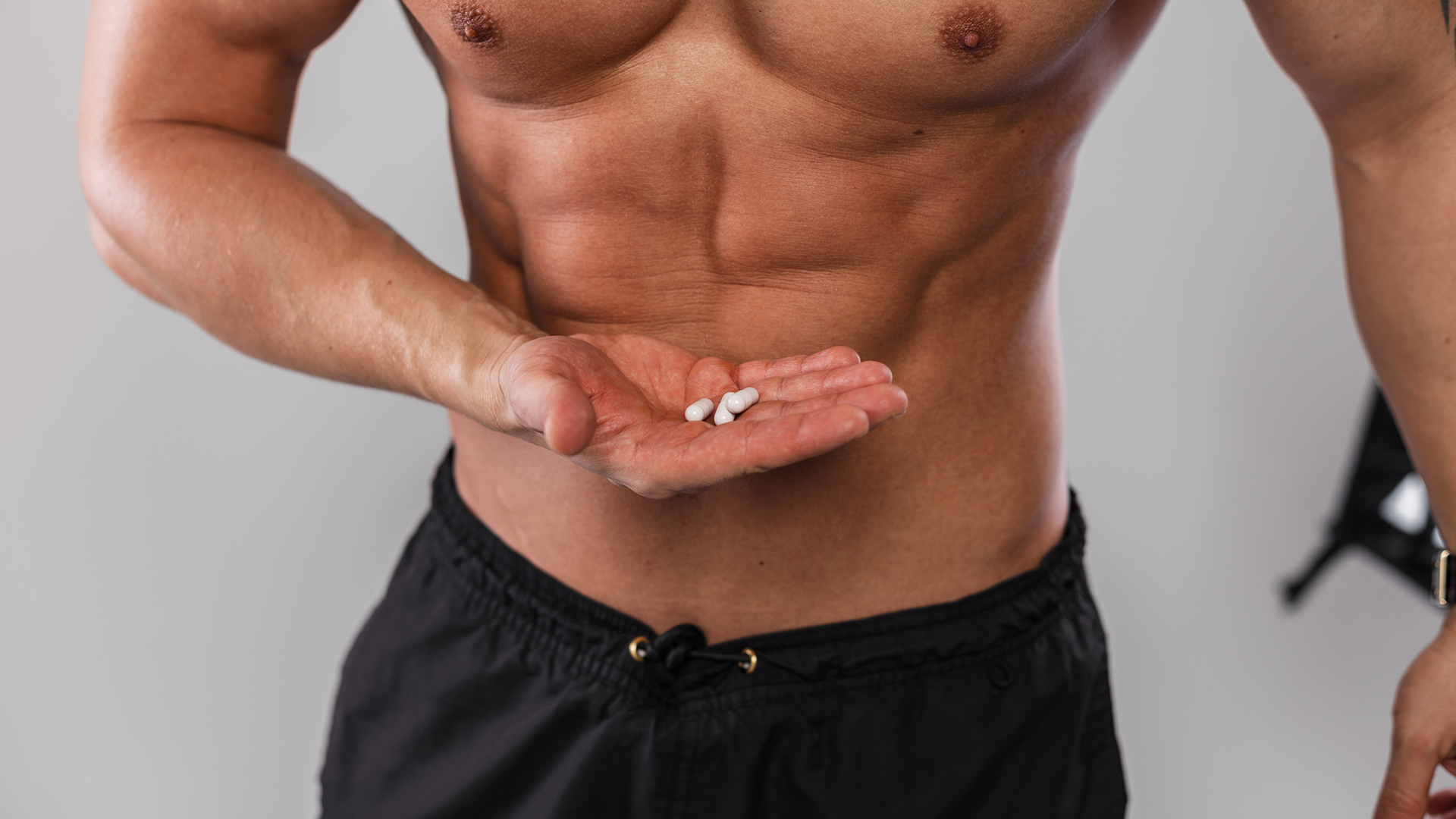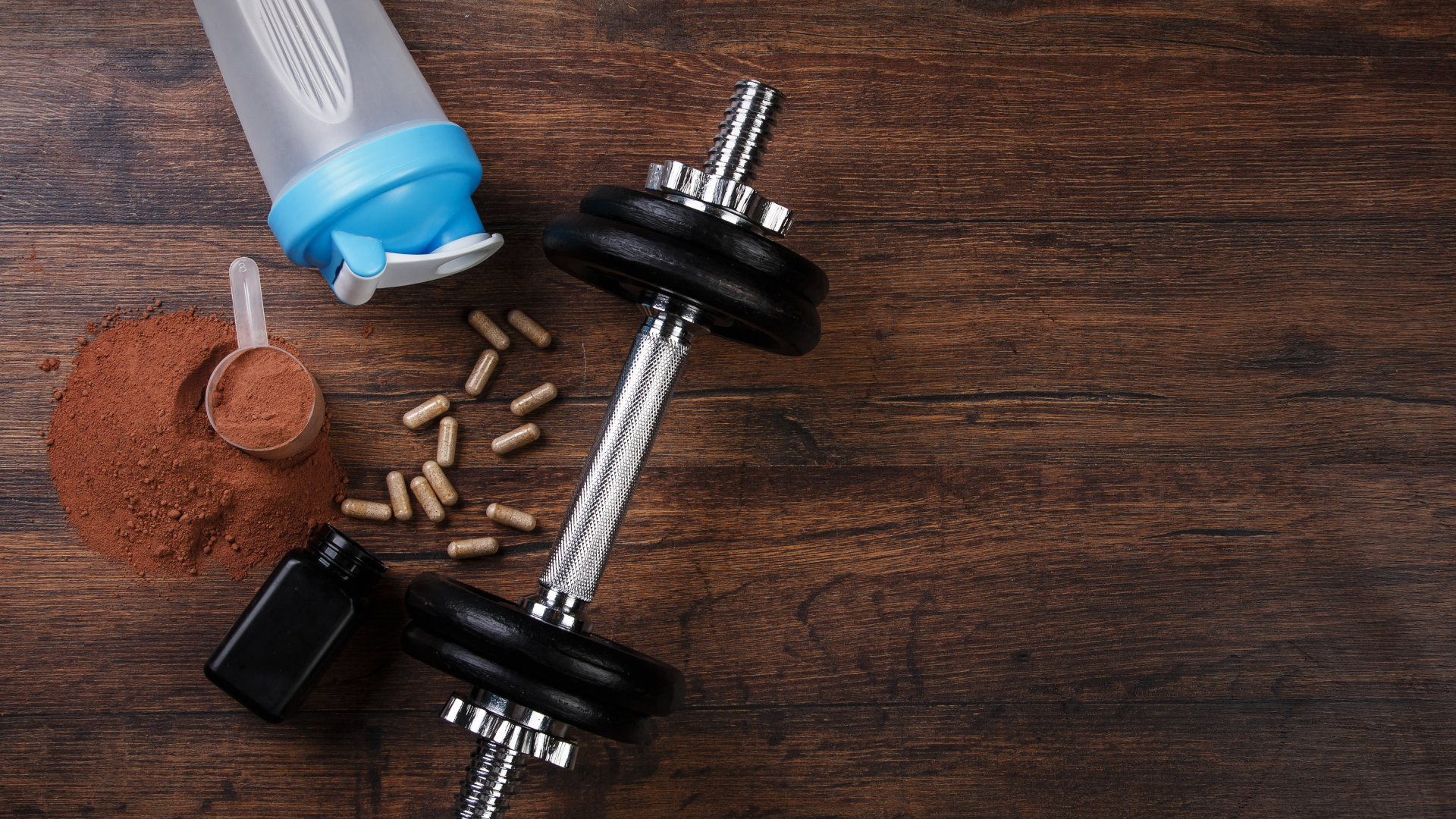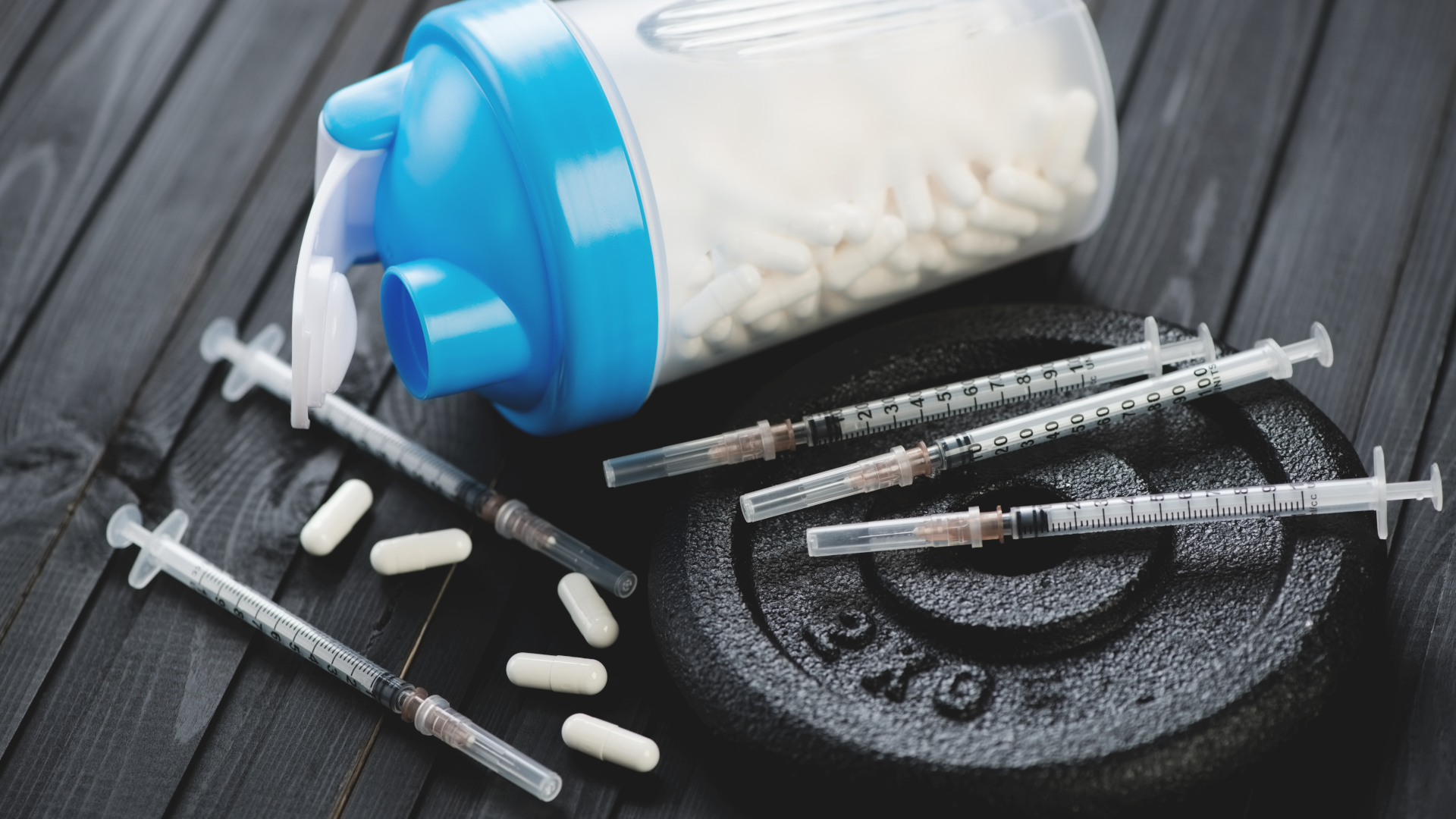- Why zinc is essential for health?
- What to eat to increase zinc and testosterone levels?
- How can zinc increase testosterone?
- What are the scientific studies results?
- Effects of using zinc together with magnesium and vitamin B6 (ZMA)?
- Is it better to supplement with just zinc or more complex formulation?
- Conclusion
Why is zinc essential for health?
Having insufficient levels of zinc in your body can have a huge impact on your health and well-being – in particular, your testosterone levels.
Not only can it cause a drop in androgen receptors; an increase in estrogen receptors and increase the risk of testosterone being converted in estrogen (triggering aromatization i.e. man boobs); drops in testosterone can also trigger muscle loss, weight gain, and erectile dysfunction – ouch!
Yet this is not the worst of it…
Whilst zinc is an essential dietary mineral, our bodies cannot store it. That’s right! You need to consume a certain amount of zinc every day to keep your body functioning.
How can you find a healthy zinc and testosterone balance?
Now you would think adjusting your diet would be enough to keep your zinc levels up. And in many ways, it can. But here is the thing – your testosterone levels can vary by the hour – yep the hour – making it impossible for you to eat everything you need (every day) in order to successfully supplement this mineral.
Knowing this – is it any wonder that 2 billion people worldwide are believed to be zinc deficient? The odds are stacked against you – especially as you get older.
Yet it cannot be ignored…
Zinc Facts:
One: Zinc is vital for cell division and a healthy functioning immune system.
Two: Zinc helps enzymes to break down foods/nutrients.
Three: Zinc plays a key role in helping enzymes to build proteins (and the more proteins you have, the easier it is for you to build muscle).
Four: Zinc is believed to help the cells in your testes to produce testosterone.
Five: Zinc is involved in more than 100 chemical processes in your body.
Six: Zinc can improve bone strength.
Seven: Zinc can help to raise your libido, stamina and physical performance.
The key benefit here is how much zinc can positively influence your testosterone levels. Should it drop – and let’s face it, it will once you hit 30 – significant falls in testosterone can cause hypogonadism.
And this is not a good thing…
Alongside feeling more fatigued, low testosterone levels can cause: reduced muscle mass and bone strength; weight gain; decreased sex drive and libido; erectile dysfunction; hot flashes and difficulties concentrating/focusing.
Thanks… but no thanks…
What to eat to increase zinc and testosterone levels?
By now, you’re probably thinking ‘how much zinc should I take to increase testosterone?’ Well according to recent research, they suggest men over the age of 19 should consume 11mg of zinc every day.
Now the easiest way to achieve this is through your diet. For instance, all of the following foods are renowned for being rich in zinc and Vitamin D:
- Oysters
- Beef
- Crab
- Fortified cereals and breads
- Pork
- Beans
- Chicken
- Yogurt
- Nuts
- Oatmeal
- Dietary supplements
PLEASE NOTE: Although it is quite easy for us to become zinc deficient; it is also incredibly easy to take too much.

Studies have revealed that consuming more than 40mg of zinc a day can cause toxicity which is incredibly harmful to your body. From feelings of nausea, headaches, and vomiting, to diarrhea and abdominal cramps; none of these side effects are very pleasant. For that reason, please be mindful of how much you take to ensure your body stays safe from side effects.
How can zinc increase testosterone?
Believe it or not, despite the hundreds of claims attesting that zinc can increase your testosterone levels, very little is actually understood about ‘how’ this dietary mineral manages to do it.
The biggest theory is that alongside influencing cell division and immunity, zinc can also assist androstenedione and help convert it into testosterone (which can help to raise your testosterone levels).
In addition, zinc can influence the cells in your testes which are responsible for creating testosterone, as well as can lower SHBG (sex hormone-binding globulin). By stopping SHBG from binding to and inhibiting the function of testosterone, this can help raise your free testosterone levels.
Research has also shown that zinc can protect you from exercise-induced testosterone reduction. This happens more often than you think due to endurance training programmes e.g. running on a treadmill, long stints on your bike, bodybuilding, etc. Each of these high-intensity exercises can lower your testosterone levels – helping you to exercise for longer. Zinc limits this testosterone reduction, enabling you to stay active in and out of the gym whilst keeping your testosterone levels healthy.
What are the scientific studies results?
Zinc has been linked to over 100 chemical processes within the body, so it comes as no surprise that a number of studies have been done on this essential dietary mineral. Yet surprisingly the zinc – testosterone connection is still not fully understood.
Take a look at the following studies…
They have explored the connection between zinc dosage and testosterone:
Study One: when participants had their zinc intake (from foods) restricted, researchers noted a drop in testosterone levels. When given zinc supplements, their testosterone levels increased.
Study Two: during a study on participants with infertility issues (who had either low or normal testosterone levels), they looked into the effects of adding zinc to their diet and they saw significant benefits for those with low testosterone, including increased testosterone and sperm counts. Those with normal testosterone levels saw no changes.
Study Three: elite wrestlers given zinc dosages on a daily basis, noticed a smaller decline in testosterone levels (reduced testosterone suppression) when they undertook a 4-week high-intensity training programme. In fact, they saw higher testosterone and thyroid hormone levels compared to those who only had the placebo. Those in the placebo group saw a decrease in both hormones due to the amount of strenuous exercise they undertook.
Study Four: when researchers examined the effectiveness of magnesium and zinc supplements, they found that when they gave participants 30mg of zinc per day, they experienced a rise in free testosterone around their bodies.
Study Five: a recent study discovered that zinc supplements can’t raise testosterone levels if you’re already receiving enough zinc from your diet. During the study, they assessed men who ate the recommended amount of zinc. When given a zinc supplement, they saw no difference in testosterone levels, although it did help them to maintain it.
Study Six: when a group of sedentary male volunteers were subjected to fatiguing bicycle exercise over 4 weeks; daily zinc dosages helped them to maintain and increase both their total and free testosterone levels compared to those in the placebo group.
Whilst there is still a lot of speculation over ‘how’ zinc can help to improve testosterone levels. What is clear from these studies is that zinc supplementation has the potential to boost testosterone levels in those with low testosterone AS WELL AS assist those suffering from zinc deficiency. Similarly, adding zinc to your day can prevent testosterone suppression in those performing high-intensity exercises.
If however, your testosterone levels are normal or you’re already getting plenty of zinc from your diet – well, zinc supplements won’t make an ounce of difference.
Effects of using zinc together with magnesium and vitamin B6 (ZMA)?
ZMA is a type of supplementation that combines zinc with magnesium and Vitamin B6. This unique combination is believed to take zinc’s existing testosterone boosting capabilities and magnify it.
In a recent study by Western Washington University, they explored the combination of these three nutrients. During their study (on a group of strength-trained varsity collegiate football players), they discovered that the presence of Vitamin B6 helped to increase the absorption of zinc and magnesium into the body. In addition, ZMA was found to improve their anabolic hormone profile and muscle function.
Now, whilst it is already known that zinc can’t boost testosterone if you’re already getting enough from your diet. This study into the effects of ZMA does suggest that it can potentially boost testosterone and strength in athletes in their prime.
This is probably down to the fact that getting enough zinc in your diet isn’t always as easy as it looks. From your testosterone levels changing hourly, to the impact of physical stress (from work or exercise), this can increase your need for zinc.
This means – in theory – anything you can do to maximize testosterone levels is important. And supplements such as ZMA or Testo-max have the potential to do this.
By simply taking 10-20mg of zinc a day – with nutrients such as magnesium and Vitamin B6 – they can help to boost your testosterone levels and increase the amount of zinc absorbed.
Is it better to supplement with just zinc or more complex formulation?
If we’re honest, there are pros and cons to them both.
Can zinc on its own help to boost testosterone levels? Yes, it can! By helping to convert androstenedione into testosterone; stopping SHBG from binding to and inhibiting the function of testosterone, and influencing the cells in your testes into making more testosterone – all of this can help to raise your free testosterone levels.
YET… what is also clear, is that more complex formulations can enhance this process. Take ZMA. The presence of magnesium and Vitamin B6 alone has been found to boost the amount of zinc absorbed into your body. And given that we can’t store zinc, the more we can do to help out bodies to absorb it, the better.
And ZMA is not the only complex formulation out there…
Testo-Max, for example, contains a unique formulation of D-Aspartic acid, magnesium, zinc and Vitamins (D, B6, K1 and more), which have been proven to boost testosterone, increase muscle mass and strength, and improve your energy levels and performance. Simply take 20 minutes before breakfast and its capsules can help to: keep your levels healthy and prevent testosterone suppression from occurring during high-intensity exercise.
Conclusion
Appearances can be deceptive. Take zinc for testosterone…
Whilst on the surface, adding zinc to your diet CAN help to naturally raise free testosterone; unless you get your testosterone levels tested regularly – hell even hourly – there is no guarantee that you’ve received enough.
Similarly, add into the equation strenuous exercise/continuously stressful days at work, and you’ve got no hope.
Now, don’t get us wrong…
Using food to boost your zinc levels is a productive way to prevent zinc deficiency and keep your body healthy. However, for real results – such as protection from testosterone suppression – zinc supplements can ensure you make up the difference not achieved by your diet.
For instance – we already know that if you’re receiving enough zinc from your diet, any extra (as long as it isn’t more than 40mg of zinc a day) will simply be used to help maintain your testosterone levels. Sure, it won’t bring them any higher, but its presence will stop your testosterone levels from dropping during strenuous exercise.
Something else we’ve learned from these studies is that whilst zinc is great on its own, complex zinc formulations containing Vitamin B6 and magnesium, are more effective at helping to raise your testosterone levels. This is due to Vitamin B6 ensuring that maximum amounts of zinc are absorbed into your body – brill!
Knowing all of this, it makes sense that should you choose to go the supplementation route – especially if you hit the gym hard – you should opt for more complex formulations, such as Testo-Max.
Do that and its unique combination of zinc, magnesium, and vitamins (D, B6 and K1) CAN confidently keep your testosterone levels safe.
To learn more about Testo-Max and its natural formulation, visit this page.
Over 299,434 purchases
Over 509,389 bottles sold
Over 30,563,340 pills taken








